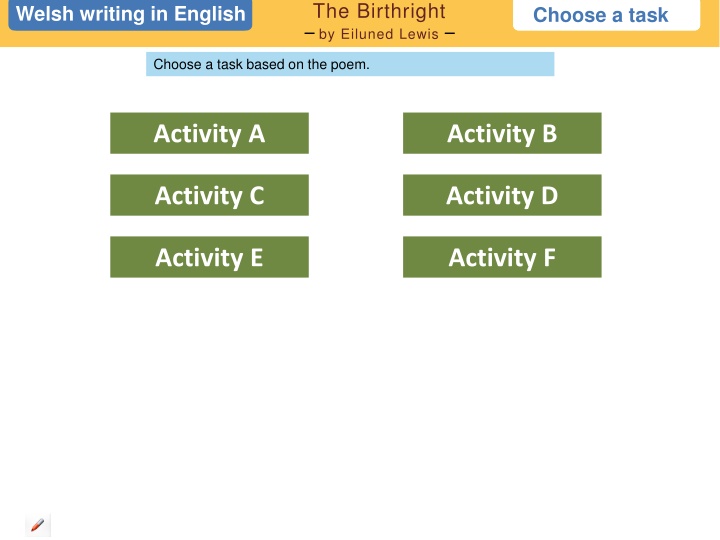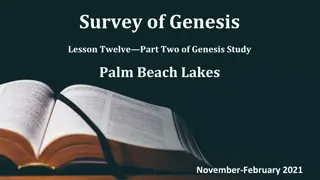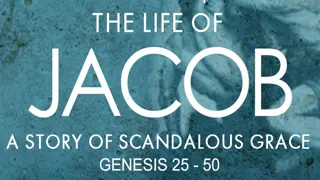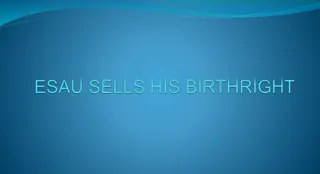
Birthright by Eiluned Lewis
Explore the poetic work "The Birthright" by Eiluned Lewis in English Welsh writing and unravel the themes of nature, heritage, and identity portrayed in the poem. Dive into the poet's perspective on the inherent birthright shared by those connected to the countryside and its elements.
Download Presentation

Please find below an Image/Link to download the presentation.
The content on the website is provided AS IS for your information and personal use only. It may not be sold, licensed, or shared on other websites without obtaining consent from the author. If you encounter any issues during the download, it is possible that the publisher has removed the file from their server.
You are allowed to download the files provided on this website for personal or commercial use, subject to the condition that they are used lawfully. All files are the property of their respective owners.
The content on the website is provided AS IS for your information and personal use only. It may not be sold, licensed, or shared on other websites without obtaining consent from the author.
E N D
Presentation Transcript
The Birthright by Eiluned Lewis Welsh writing in English Welsh writing in English Choose a task Choose a task based on the poem. Activity A Activity B Activity A Activity B Activity C Activity D Activity C Activity D Activity E Activity F Activity E Activity F
The Birthright by Eiluned Lewis Activity A Welsh writing in English Welsh writing in English Menu Menu What is a birthright ? How would you describe in your own words what the poet believes is our birthright? We who were born In country places, Far from cities And shifting faces, We have a birthright No man can sell, And a secret joy No man can tell. i For we are kindred To lordly things, The wild duck s flight And the white owl s wings; To pike and salmon, To bull and horse, The curlew s cry And the smell of gorse. i Pride of trees, Swiftness of streams, Magic of frost Have shaped our dreams: No baser vision Their spirit fills Who walk by right On the naked hills. On the naked hills. We who were born In country places, Far from cities And shifting faces, We have a birthright No man can sell, And a secret joy No man can tell. i For we are kindred To lordly things, The wild duck s flight And the white owl s wings; To pike and salmon, To bull and horse, The curlew s cry And the smell of gorse. i Pride of trees, Swiftness of streams, Magic of frost Have shaped our dreams: No baser vision Their spirit fills Who walk by right Whose birthright is she describing? Look at the pronouns used in the poem. What do they tell you about whose birthright the poet is describing? Click to show pronouns. Try substituting I and me to see what difference it would make.
The Birthright by Eiluned Lewis Activity B Welsh writing in English Welsh writing in English Menu Menu The poem has the simplicity of a child s poem or a nursery rhyme. How is this simplicity achieved? We who were born In country places, Far from cities And shifting faces, We have a birthright No man can sell, And a secret joy No man can tell. i For we are kindred To lordly things, The wild duck s flight And the white owl s wings; To pike and salmon, To bull and horse, The curlew s cry And the smell of gorse. i Pride of trees, Swiftness of streams, Magic of frost Have shaped our dreams: No baser vision Their spirit fills Who walk by right On the naked hills. On the naked hills. We who were born In country places, Far from cities And shifting faces, We have a birthright No man can sell, And a secret joy No man can tell. i For we are kindred To lordly things, The wild duck s flight And the white owl s wings; To pike and salmon, To bull and horse, The curlew s cry And the smell of gorse. i Pride of trees, Swiftness of streams, Magic of frost Have shaped our dreams: No baser vision Their spirit fills Who walk by right Look at the structure of each stanza. How would you divide each stanza into sections? What do you notice about this in each stanza? Click to show sections. Look at the use of rhyme in each stanza. What do you notice? Click to show rhymes. Are there other kinds of repetition that you notice? Are there any long or difficult words in the poem? Why has the poet made these choices?
The Birthright by Eiluned Lewis Activity C Welsh writing in English Welsh writing in English Menu Menu What are the main qualities of the poet s birthright ? We who were born In country places, Far from cities And shifting faces, We have a birthright No man can sell, And a secret joy No man can tell. i For we are kindred To lordly things, The wild duck s flight And the white owl s wings; To pike and salmon, To bull and horse, The curlew s cry And the smell of gorse. i Pride of trees, Swiftness of streams, Magic of frost Have shaped our dreams: No baser vision Their spirit fills Who walk by right On the naked hills. The poem begins and ends with direct references to the birthright the poet loves. Why do you think the poem is structured in that way? What does each stanza say about the important qualities of her birthright? Click to show highlighted sections
The Birthright by Eiluned Lewis Activity D Welsh writing in English Welsh writing in English Menu Menu Look again at the first stanza. Not everyone is entitled to the poet s idea of a birthright . Who is excluded and why do you think the poet excludes them? Eiluned Lewis was born and grew up on a large farm in Mid Wales, before spending her adult life in the south of England. How might this have affected her idea of her birthright? We who were born In country places, Far from cities And shifting faces, We have a birthright No man can sell, And a secret joy No man can tell. i What do you think is meant by shifting faces ? What picture is established in this stanza of the kind of place which is the poet s birthright? Do you agree with the poet that this might be your birthright too? Why is the birthright described as a secret joy ?
The Birthright by Eiluned Lewis Activity E Welsh writing in English Welsh writing in English Menu Menu How does the poet portray her view of the landscape of her birthright in this stanza? We who were born In country places, Far from cities And shifting faces, We have a birthright No man can sell, And a secret joy No man can tell. i For we are kindred To lordly things, The wild duck s flight And the white owl s wings; To pike and salmon, To bull and horse, The curlew s cry And the smell of gorse. i Pride of trees, Swiftness of streams, Magic of frost Have shaped our dreams: No baser vision Their spirit fills Who walk by right On the naked hills. On the naked hills. We who were born In country places, Far from cities And shifting faces, We have a birthright No man can sell, And a secret joy No man can tell. i For we are kindred To lordly things, The wild duck s flight And the white owl s wings; To pike and salmon, To bull and horse, The curlew s cry And the smell of gorse. i Pride of trees, Swiftness of streams, Magic of frost Have shaped our dreams: No baser vision Their spirit fills Who walk by right Look at the first two lines. The word kindred is important here. Why do you think the poet used it? Why does the poet use the phrase lordly things to describe what is shown in the rest of the stanza? Which senses are used to describe nature here? Click to highlight some sense words. Look at the lordly things listed here. What kind of picture is created by these choices?
The Birthright by Eiluned Lewis Activity F Welsh writing in English Welsh writing in English Menu Menu In what ways does the poet suggest that this landscape influences those who have it by right ? We who were born In country places, Far from cities And shifting faces, We have a birthright No man can sell, And a secret joy No man can tell. i For we are kindred To lordly things, The wild duck s flight And the white owl s wings; To pike and salmon, To bull and horse, The curlew s cry And the smell of gorse. i Pride of trees, Swiftness of streams, Magic of frost Have shaped our dreams: No baser vision Their spirit fills Who walk by right On the naked hills. In the previous stanza, actual creatures and plants were included. Here, a different approach is taken in describing the landscape. Look at the first four lines. How is the landscape described here? Do you consider this version of the landscape to be our birthright? Look at the last four lines. What has shaped our dreams and fills our vision here? How would you describe the mood of the poem in this stanza?



